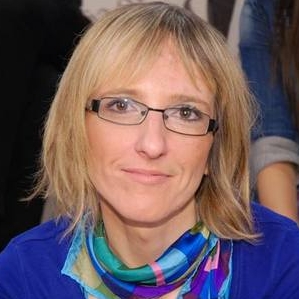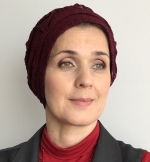Peacebuilding as an activity by local actors with agency remains marginal in the literature as a conceptual focus. The Peace Academy's initiative, "Study of Peacebuilding Practice in Divided Societies," aims to contribute to this focus, strengthening this empirical research in a way that bridges disciplinary and institutional boundaries. Since 2008, the Peace Academy has been compiling a physical and online library of academic research about peace practice in post-Yugoslav countries (primarily BiH) and reflections and analysis by peacebuilding practitioners themselves. A small bibliographical sample of our materials is below. Please contact the Peace Academy at This email address is being protected from spambots. You need JavaScript enabled to view it. if you're interested in finding out more or accessing the full-text materials in our library via the online Zotero website.
Bilić, B. (2012). We Were Gasping for Air: (Post-)Yugoslav Anti-War Activism and Its Legacy (1. Auflage). Nomos.
Clarke-Habibi, S. (n.d.). Teachers ’ perspectives on educating for peace in Bosnia and Herzegovina and Herzegovina.
Clarke-Habibi, S. (2005). Transforming Worldviews: The Case of Education for Peace in Bosnia and Herzegovina. Journal of Transformative Education, 3(1), 33–56.
Ćurković, S., Kirn, G., Krašovec, P., Pejić, D., Jadžić, M., & Ćurčić, B. (2011). Tranzicija i solidarnost.
JugoLink,
1(1).
http://jugolink.files.wordpress.com/2011/12/jugolink_prvi_broj.pdfDanesh, H. B. (Ed.). (2011).
Education for Peace Reader (Vol. 4). Education for Peace.
http://efpinternational.org/wp-content/uploads/2011/11/efp_reader.pdfDavid, L. (2010). Državni projekat sećanja i zaborava: sretenje kao novi master komemorativni narativ savremene Srbije. In D. Majstorović (Ed.), Kritičke kulturološke studije u postjugoslovenskom prostoru (pp. 291–314). Filozofski fakultet univerziteta u Banjoj Luci.
Dvornik, S. (2009).
Akteri bez drustva: uloga civilnih aktera u postkomunistickim promjenama. Fraktura ; Heinrich Böll Stiftung.
https://ba.boell.org/sites/default/files/akteri_bez_drustva.pdfFunk, J. (2019). Religions as loci of conflict prevention: Local Capacities of Bosnia and Herzegovina’s Religious Communities.
Occasional Papers on Religion in Eastern Europe,
39(5).
https://digitalcommons.georgefox.edu/cgi/viewcontent.cgi?article=2132&context=reeFunk, J., & Good, N. (2017). Neizliječena trauma: rad na ozdravljenju i izgradnji mira u BiH. TPO Fondacija.
Funk, J., & Spahić Šiljak, Z. (2018). Bringing Faith into the Practice of Peace. Muslim Paths to Reconciliation in Bosnia and Herzegovina. In Reconciliation in Global Context: Why It Is Needed and How It Works (pp. 105–127). SUNY University Press.
Hromadžić, A. (2010). Miješanje u školskim toaletima: mladi i politika pomirenja u poslijeratnoj bosni i hercegovini. In D. Majstorović (Ed.), Kritičke kulturološke studije u postjugoslovenskom prostoru. Filozofski fakultet univerziteta u Banjoj Luci.
Hug, V. (2016). The role of personal relationships in peacebuilding interventions.
Husanović, J., & Arsenijević, D. (2010). Zajednica kao učionica = akademija: Pregled emancipativne politike produkcije znanja. In D. Majstorović (Ed.), Kritičke kulturološke studije u postjugoslovenskom prostoru (pp. 30–39). Filozofski fakultet univerziteta u Banjoj Luci.
Jukić, T. (2010). Narativni kolektivi danila kiša. In D. Majstorović (Ed.), Kritičke kulturološke studije u postjugoslovenskom prostoru (pp. 187–209). Filozofski fakultet univerziteta u Banjoj Luci.
Laketa, S. (2010). Mir mir mir, niko nije kriv: Adornova kritika ideje napretka. In D. Majstorović (Ed.), Kritičke kulturološke studije u postjugoslovenskom prostoru (pp. 114–121). Filozofski fakultet univerziteta u Banjoj Luci.
Little, D., & Tanenbaum Center for Interreligious Understanding (Eds.). (2007). Peacemakers in action. Profiles of religion in conflict resolution. Cambridge University Press.
Milutinović-‐bojanić, S. (2010). Građanska neposlušnost versus hejtovanje. In D. Majstorović (Ed.), Kritičke kulturološke studije u postjugoslovenskom prostoru (pp. 210–227). Filozofski fakultet univerziteta u Banjoj Luci.
Popov-Momčinović, Z. (2012). Faith-based aktivizam: novi praktički okvir za promišljanje projekta „Demitologizacije“. In N. Knježević, S. Sremac, & G. Golubović (Eds.), Demitologizacija religijskih narativa na Balkanu: Uloga religija u (post)konfliktnom društvu i procesima pomirenja na prostorima bivše Jugoslavije. Centar za istraživanje religije, politike i društva.
Popov-Momčinović, Z. (2013). Ženski pokret u BiH: Artikulacija jedne kontrakulture. Sarajevo otvoreni centar; Centar za empirijska istraživanja religije u Bosni i Hercegovini; Fondacija CURE.
Popov-Momčinović, Z. (2015). Procesi pomirenja u rodnoj perspektivi: Između esencijalizma i performativnog decentriranja. In Z. Kuburić & M.-A. Brkić (Eds.), Zbornik radova konferencija istraživanje uloge religije o procesu izgradnje povjerenja i pomirenja (pp. 137–156). Centar za empirijska istraživanja religije u BiH; Sveučilište Hercegovina.
Ramet, S. (2004). Explaining the Yugoslav meltdown, 1 “for a charm of pow’rful trouble, like a hell-broth boil and bubble”: theories about the roots of the Yugoslav troubles.
Nationalities Papers,
32(4), 731–763.
https://doi.org/10.1080/0090599042000296171Šavija-Valha, N. (2012). Beyond Peacebuilding Assistance in Bosnia and Herzegovina. In Resisting the Evil.
Šavija-valha, N., & Šahić, E. (n.d.).
Building Trans-ethnic Space. Nansen Dialog Center - Sarajevo.
https://ndcsarajevo.org/Dokumenti/BUILDING%20TRANS-ETHNIC%20SPACE.pdfSejfija, I. (2009). NVO sektor u BiH: Tranzicijski izazovi. Bosanska Riječ.
Simic, O. (2009). Activism for Peace in Bosnia and Herzegovina: A Gender Perspective. 8(15), 20.
Spahić Šiljak, Z. (n.d.). Women, Religion and Peace Leadership in Bosnia and Herzegovina. EWI Fellowship Programme.
Spahić Šiljak, Z. (2015). Believers for Social Change: Bridging the Secular Religious Divide in Bosnia and Herzegovina. International Relations and Diplomacy, 3(10), 681–690.
Spahić-Šiljak, Z. (2015). Merhametli Peace is Women’s Peace: Religious and Cultural Practices of Compassion and Neighborliness in Bosnia and Herzegovina. In Saika, Jasmina & Haines, Chad (Eds.), Women and Peace in the Islamic World: Gender, Agency, and Influence (pp. 345–364). I. B. Tauris.
Stanton, E., & Kelly, G. (2015). Exploring Barriers to Constructing Locally Based Peacebuilding Theory: The Case of Northern Ireland.
International Journal of Conflict Engagement and Resolution,
3(1), 33–52.
https://doi.org/doi: 10.5553/IJCER/221199652015003001002 3

 Larisa Kasumagić- Kafedžić, PhD has been actively involved in peaceful upbringing, community youth development programs, philosophy of nonviolence and intercultural pedagogy for the past 25 years. During the war in Bosnia, she co-founded a local organization that provided psycho-social support for war traumatized children and their families and developed a series of programs for children, youth and teachers that were based on peace education and nonviolence principles. She holds a MA in international development and education from Cornell University, USA, and Ph.D. in English Language Pedagogy and Intercultural Education from Sarajevo University. She is an associate professor at the Teacher Education Program of the Department of English language and literature at the Faculty of Philosophy in Sarajevo. Selected publications:
Larisa Kasumagić- Kafedžić, PhD has been actively involved in peaceful upbringing, community youth development programs, philosophy of nonviolence and intercultural pedagogy for the past 25 years. During the war in Bosnia, she co-founded a local organization that provided psycho-social support for war traumatized children and their families and developed a series of programs for children, youth and teachers that were based on peace education and nonviolence principles. She holds a MA in international development and education from Cornell University, USA, and Ph.D. in English Language Pedagogy and Intercultural Education from Sarajevo University. She is an associate professor at the Teacher Education Program of the Department of English language and literature at the Faculty of Philosophy in Sarajevo. Selected publications:

